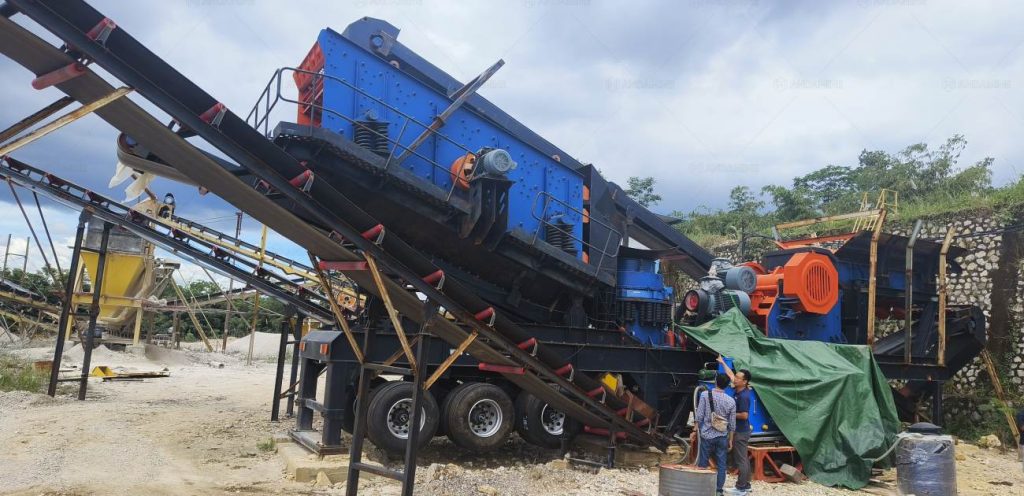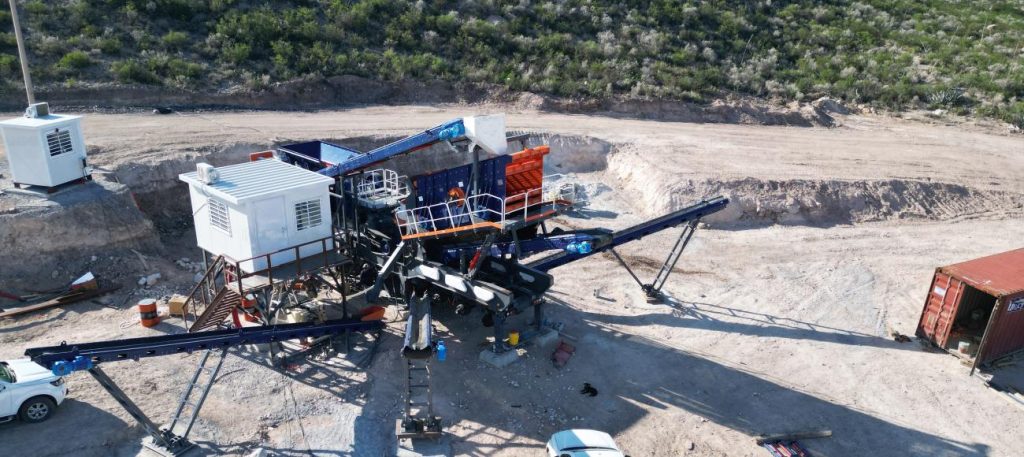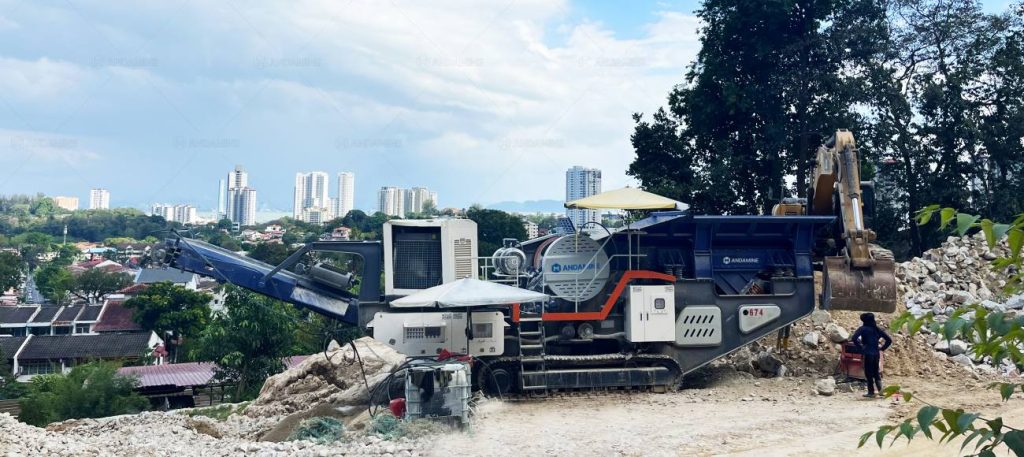The construction, mining, and aggregate industries are under increasing pressure to adopt sustainable practices and minimize environmental impact. Mobile crushing plants, widely used for on-site material processing, play a critical role in achieving these goals. By integrating water recycling systems and implementing robust environmental management strategies, operators can not only reduce their ecological footprint but also improve operational efficiency and cost-effectiveness. Modern mobile crushing plants, including mobile jaw crusher plant, mobile impact crusher, and mobile cone crushers, offer innovative solutions to meet environmental standards while maintaining high productivity.

The Importance of Environmental Management in Mobile Crushing
Mobile crushing plants are versatile machines used to crush and process a variety of materials such as granite, limestone, quartz, and recycled concrete. While these machines are essential for construction and mining, their operations generate dust, noise, and wastewater. Effective environmental management is crucial to:
Comply with regulatory requirements – Many countries have strict environmental standards regarding water usage, dust emissions, and noise levels.
Reduce operational costs – Recycling water reduces the need for continuous freshwater supply, lowering water-related expenses.
Enhance community relations – Managing dust and water discharge minimizes the impact on surrounding communities.
Promote sustainability – Efficient use of water and energy aligns with corporate social responsibility initiatives and sustainable construction practices.
Water Use in Mobile Crushing Plants
Water is used in mobile crushing plants primarily for dust suppression and sand or fine material washing. During crushing operations, dust is generated when materials such as limestone or granite are broken down. Dust not only affects workers’ health but can also reduce equipment efficiency by clogging screens and conveyors. Water spraying systems are typically employed at various points in the process to control dust.
In addition, water is used to wash crushed materials in aggregate production lines. Washing removes silt, clay, and impurities, ensuring high-quality sand and aggregates suitable for construction and industrial applications. Without proper water management, significant quantities of wastewater can be generated, posing environmental hazards and increasing operational costs.
Water Recycling Systems
To address water usage concerns, mobile crushing plants are increasingly equipped with water recycling systems. These systems collect, filter, and reuse water multiple times throughout the operation. Key components include:
Settling tanks – These allow suspended solids to settle before water is reused, reducing turbidity and improving washing efficiency.
Pumps and piping networks – Efficient circulation ensures that water reaches spraying nozzles, washing systems, and dust suppression points.
Filtration units – Fine particles are removed using mechanical or chemical filtration, maintaining water quality and preventing equipment clogging.
By implementing water recycling, operators of a mobile jaw crusher plant can significantly reduce freshwater consumption. Similarly, a mobile impact crusher or mobile cone crushers integrated with recycling systems can maintain efficient washing and dust suppression operations without relying heavily on external water sources.

Environmental Benefits
Water recycling in mobile crushing plants offers multiple environmental benefits:
Reduced freshwater consumption – Recycling allows water to be used multiple times, conserving natural resources and minimizing the impact on local water supplies.
Lower wastewater discharge – Treated and reused water reduces contamination of nearby rivers, lakes, or groundwater sources.
Dust and particulate control – Consistent water supply for spraying and washing reduces airborne dust, protecting workers and nearby communities.
Energy efficiency – Less water consumption translates to reduced pumping and treatment requirements, saving energy.
Additionally, environmental management extends beyond water usage. Modern mobile crushing plants, including mobile jaw crusher plant, mobile impact crusher, and mobile cone crushers, often incorporate features such as noise reduction enclosures, vibration dampening, and low-emission engines to further minimize environmental impact.
Best Practices for Environmental Management
To maximize the benefits of water recycling and environmental management, operators should adopt several best practices:
Site planning – Position water storage, settling tanks, and recycling systems to optimize flow and reduce leakage or spillage.
Regular maintenance – Inspect pumps, nozzles, filters, and pipes to prevent blockages and maintain water quality.
Monitoring and automation – Use sensors and automated control systems to track water levels, turbidity, and flow rates. Automation ensures efficient use and timely intervention when issues arise.
Employee training – Operators should be trained in environmental protocols, including water conservation, dust control, and waste management.
Integration with plant layout – Water recycling systems should be seamlessly integrated with crushing equipment such as mobile jaw crusher plant, mobile impact crusher, and mobile cone crushers to minimize material handling and energy usage.
Case Study: Mobile Crushing Plant in Aggregate Production
In a real-world application, a mobile impact crusher with an integrated water recycling system processed limestone for road construction. The system collected wash water from the sand washer and reused it for dust suppression at multiple crushing points. As a result, freshwater consumption was reduced by 70%, and wastewater discharge was nearly eliminated. Similarly, a mobile cone crushers unit used in granite quarrying benefited from a closed-loop water system that allowed continuous washing and dust suppression, significantly improving material quality and environmental compliance.

Conclusion
Water recycling and environmental management are essential aspects of modern mobile crushing plant operations. By incorporating efficient water reuse systems and adopting best practices in dust control, energy usage, and site planning, operators can achieve sustainable, high-performance crushing operations. Equipment such as mobile jaw crusher plant, mobile impact crusher, and mobile cone crushers are increasingly designed with these features, enabling operators to reduce environmental impact while maintaining production efficiency.
As regulatory requirements tighten and sustainability becomes a key driver in construction and mining, water recycling and comprehensive environmental management are no longer optional—they are a strategic necessity for mobile crushing plants worldwide.
